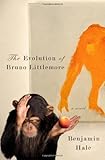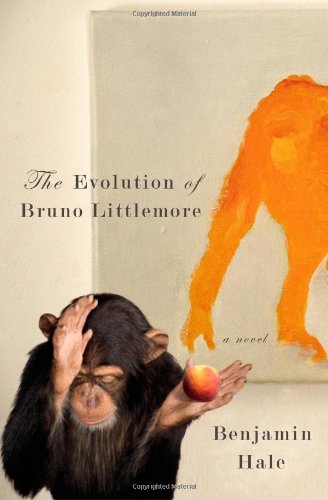King Louie, the orangutan king in The Jungle Book, did not appear in the classic stories by Rudyard Kipling. He was an invention of the 1967 Disney film, a way to shoehorn a great swing number for Louis Prima into the second act. But Kipling’s more ambivalent, less sunny thoughts on the consequences of imperial colonization, so present in the original—after all, a human being can’t grow up among animals—wiggled their way into the forefront of the Disney version. King Louie scats his way through the happy major key of the chorus, singing “I wanna be like you / walk like you, talk like you too / you see it’s true / an ape like me / can learn to be human too.” But the verses, the specifics of those human desires, sink into a minor key.
Now I’m the king of the swingers—oh, the jungle VIP.
I’ve reached the top and had to stop, and that’s what’s bothering me
I wanna be a man, man cub, and stroll right into town
And be just like the other men. I’m tired of monkey’in around.
King Louie may be a lot of fun, but those desires—to be human, to get to be powerful on a human level—leave us with a lot of doubts. Do we really think Louie could learn how to be human? And even if he could, is that something we’d want to happen?
 Who gets to be human? To what end evolution? What do education, language, sophistication portend? Can an animal learn emotional maturity the way they learn circus tricks? What aspects of humanity can—and cannot—be taught? These are the questions circling the haunting story of Benjamin Hale’s The Evolution of Bruno Littlemore. Hale does not have all the answers, but that makes his story even more powerful. A recent graduate of the Iowa Writers’ Workshop, Hale gives us a debut novel short on arrogance or pretention, but full of confidence and life. And if there is anything high-falutin’ to say, Hale manages to pull it off by putting it all in the mouth of Bruno, a precocious, erudite, and wildly romantic chimpanzee. In Bruno’s epic journey from the zoo to the primate lab to the human world and back again, no detail or emotion goes unnoticed. Yet, despite Bruno having the most romantic narrative voice since Humbert Humbert, he lacks that definitive trait that comes with lived-in humanity: humility. By giving us a narrator with so much passion, and so few successes in acting on it, Hale has created one of the most tragic literary heroes in recent memory.
Who gets to be human? To what end evolution? What do education, language, sophistication portend? Can an animal learn emotional maturity the way they learn circus tricks? What aspects of humanity can—and cannot—be taught? These are the questions circling the haunting story of Benjamin Hale’s The Evolution of Bruno Littlemore. Hale does not have all the answers, but that makes his story even more powerful. A recent graduate of the Iowa Writers’ Workshop, Hale gives us a debut novel short on arrogance or pretention, but full of confidence and life. And if there is anything high-falutin’ to say, Hale manages to pull it off by putting it all in the mouth of Bruno, a precocious, erudite, and wildly romantic chimpanzee. In Bruno’s epic journey from the zoo to the primate lab to the human world and back again, no detail or emotion goes unnoticed. Yet, despite Bruno having the most romantic narrative voice since Humbert Humbert, he lacks that definitive trait that comes with lived-in humanity: humility. By giving us a narrator with so much passion, and so few successes in acting on it, Hale has created one of the most tragic literary heroes in recent memory.
As a baby chimp in the Lincoln Park Zoo, Bruno is already beginning to seize on the limitations of the animal world. Instead of taking to his father’s technique of crude buffoonery, Bruno begins to fall in love with the visitors to the zoo. His admiration of these humans, particularly of beautiful young women, is as seductive and ominous as Humbert’s first appreciation of supple nymphets. “I have always been secretly pining for humans,” says Bruno, “longing to someday get to slither between the legs of those dazzling sapiens sapinettes I saw clip-clocking past me all day in those high-heeled shoes that make their calves taut and thrust their beautiful bulbous asses up, up, up in the air, just a little closer to God, like a streaming buffet of delicious desserts on display for Bruno behind impenetrably thick glass, to be admired but not to be touched.” When he is brought into the primatologist labs of the University of Chicago, he is given both his name (an acronym for Behavioral Rearing into Ultroneous Noumenal Ontogenesis) and a muse upon whom he can project all his yearnings for humanity. Lydia Littlemore, the lone female researcher in the lab, becomes Bruno’s first lust object, and in mixing research with affection, Bruno’s linguistic development and emotional evolution are inextricably linked. “I went with the human. I went with love, I went with lust, I went with language. I went with Lydia.”
Most stories that culminate in human transformation use love as the final ingredient—Pinocchio’s love for Geppetto, the princess finally kissing the frog, Beauty returning the love of the beast. These are the signals that characters have earned the right to their full humanity. And for Bruno, his ascent to linguistic expression comes part and parcel with his love for Lydia. He expresses it perfectly, albeit clinically: “Prerequisite to language is the desire to communicate, and prerequisite to the desire to communicate is the acknowledgment of the existence of the consciousness outside of oneself.” Romantic love—the first moment of emotional investment in someone else’s world—is Bruno’s motivator to language, to “exchange worlds”, and how he comes to express himself through spoken language feels as much like romantic poetry as it does developmental science. Hale takes the tragedy of Bruno and Lydia’s love to its fullest extent, tackling all aspects of the nature of love, sex, and emotional connection. By way of “nightly nonversations” with a “mildly retarded autistic night-shift janitor extraordinaire,” Bruno comes to speak his own name, and Lydia is the first to hear him speak. Through Bruno, we believe Lydia recognizes his humanity, and ultimately, his compatibility with her as a romantic and sexual equal. Their first sexual encounter is one of the most suspenseful and cringe-worthy moments I’ve read in recent fiction. I prayed for them to stop, and thrilled that they gave in. And they do appear to fall in love—a deep mutual love and lust that knows no taxonomy.
Or do they? Bruno may be an engaging narrator, but he is deeply untrustworthy. This is not because he does not have passion or desire or empathy, but because everything he has learned about the world has come through the lens of his own evolution, not through the evolution of others. Hale is communicating something very sophisticated in how Bruno comes to learn to express himself, but not the world around him. For all Bruno’s marvelous engagement with the written and spoken word, he knows how limited his capacity for self-expression truly is. “Every word removes the thing it is supposed to represent from the real world. Thus, every word is a lie . . . Just when you want most to speak the truth, the ineffable nature of your subject matter clogs your mouth with lies. An unchewable wad of lies, like a mouthful of cotton balls. Words get in the way of what you want to say.” Language has unlocked his vocabulary, but not necessarily his understanding—he has learned many concrete nouns and ideas, but remarkably few adjectives. He knows how to employ metaphors, but not how to reign in his own hyperbole:
For the first time in my life, I saw the sun melt below a naked horizon, reminding me of a golden egg frying in a pan. For the first time in my life, I saw land, I saw a blue sky made giant by the absence of visual landmarks, I saw vast tracts of empty space. And it amazed me. No one had ever told me the world was this big . . . My heart filled to bursting with the excitement of all this newness, the adventure of it, all the shallow hills sloping and rising along with our rapid traversal of the land, the sky meeting the visible edges of the earth in every direction! Look! This is the world!
Some readers might think Hale of being heavy-handed, and certainly sections like the one above would lead you there. This is impassioned, often melodramatic writing—but would you imagine an ape, suddenly empowered with language yet imprisoned by a lack of dignity, speaking any other way? With his formative emotional experiences being grounded in romantic love, Bruno knows nothing but melodrama, and those brief moments of his life that are simple and calm are quickly subsumed in high tragedy. When his relationship with Lydia is exposed, the realities of the world come crashing down upon him, including his own physical reality that he is, despite all his evolution, still a chimp. Though Bruno experiences language, sex, and emotional loss, he never gets to defend himself among equals, for who are his equals?
His humanity estranges him from the wild, and his wildness estranges him from humanity—yet Bruno continues to hold onto his complexity even toward the end of his ill-fated life. “I have heard . . . that self-authorship is the bourgeois fantasy par excellence. But why condemn the rebel angel for the fantasy of self-invention? Like Satan [in Milton’s Paradise Lost], I made myself with words. I wrote myself into the world.” We have to give Bruno—and Hale—credit for delivering a story like this through sheer force of will. As Bruno writes through dictation to a handy amanuensis, we can see how much language has come to mean to him, despite all that its acquisition has cost him. Though he goes on and on, the fact that he can do so and in such depth sets him apart from all others of his species—which is, after all, only a step away from our own. “Do I digress?” he asks in the middle of a long rhapsodic digression. “Very well, then, I digress. I am large, I contain multitudes.” Good for Bruno, and for Hale for delivering him to us—I’d rather have a monkey with multitudes than a human with platitudes any day.



